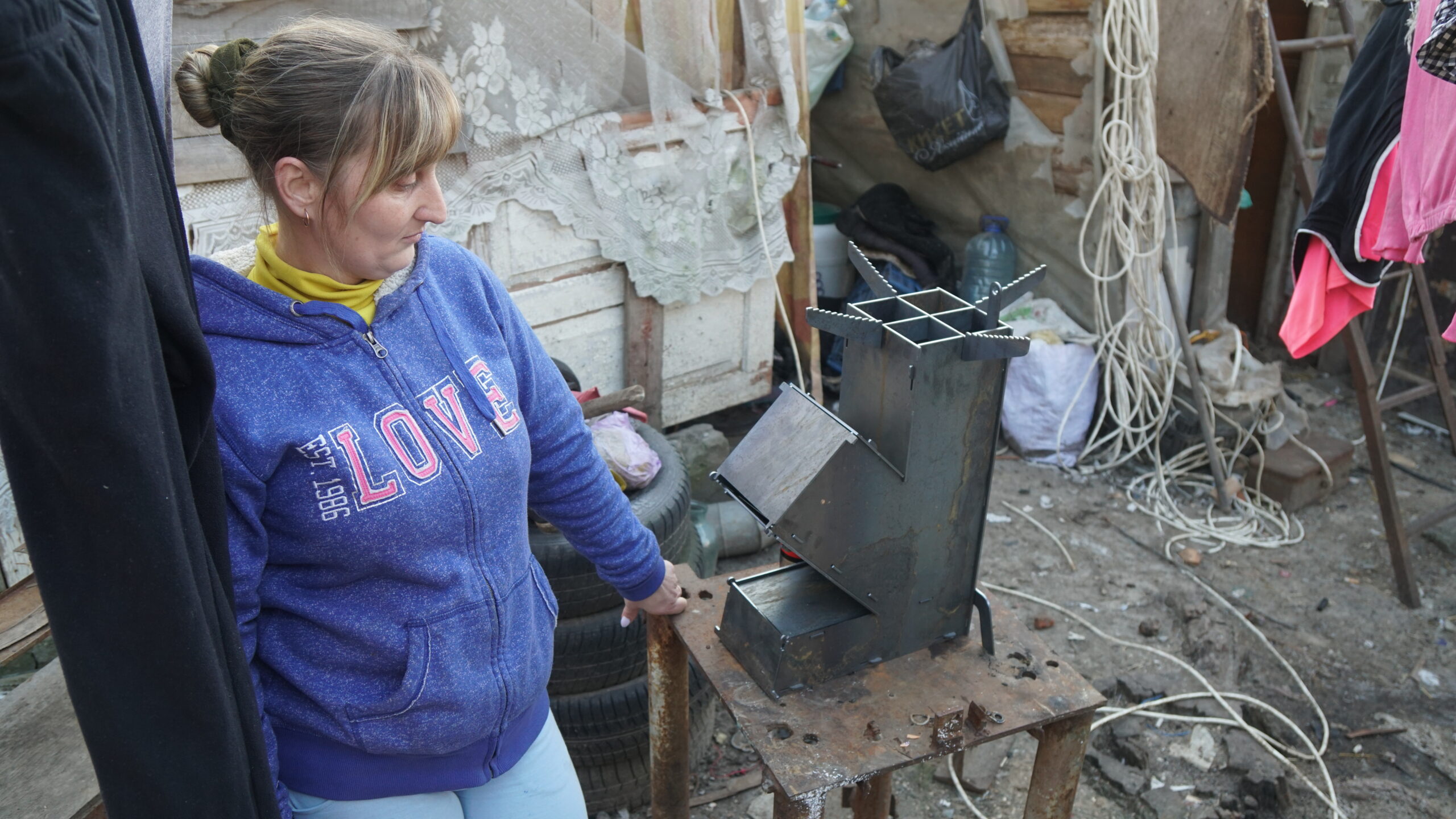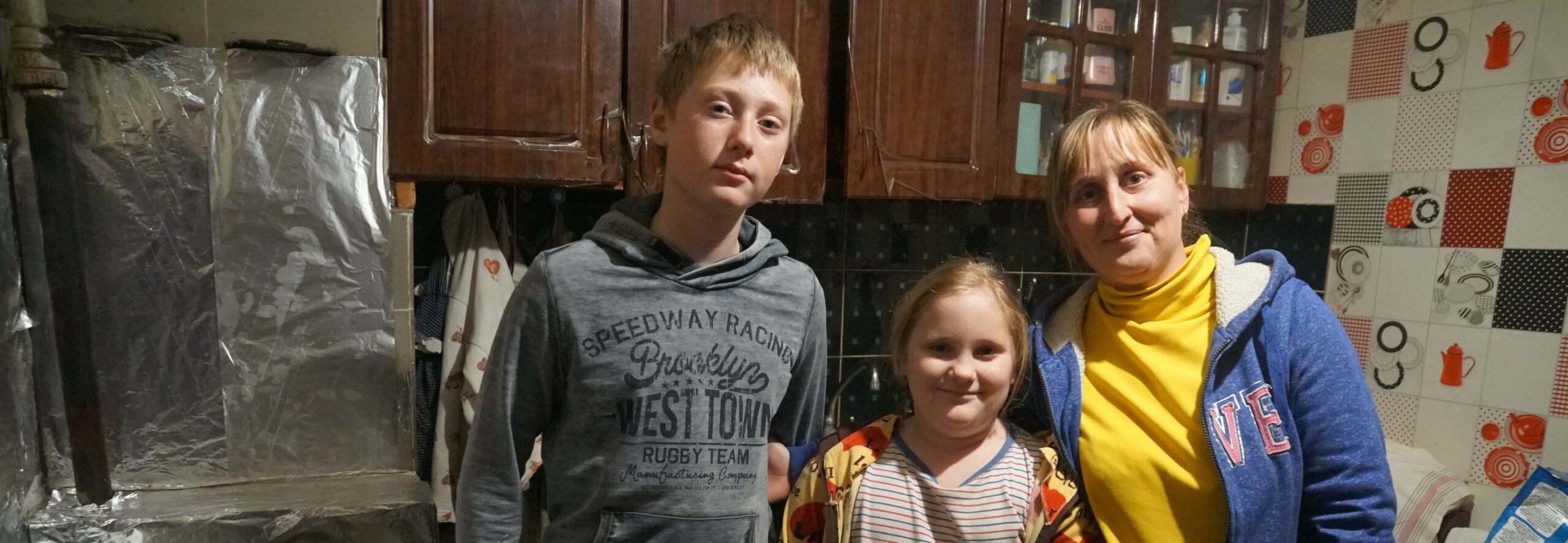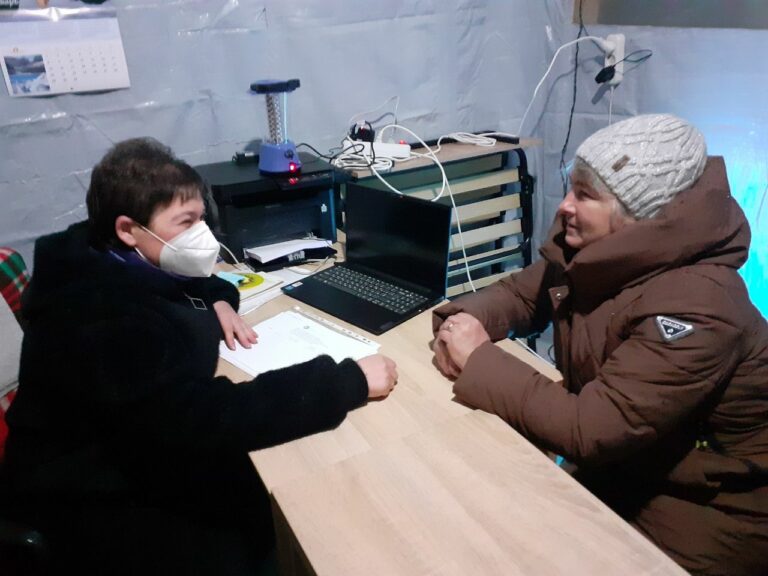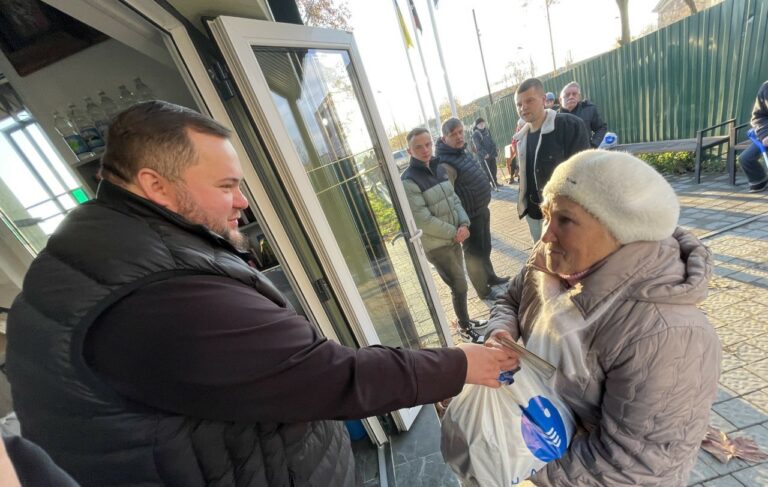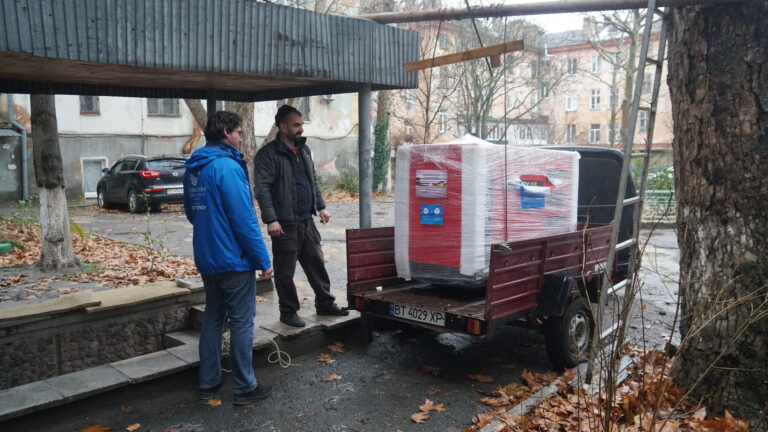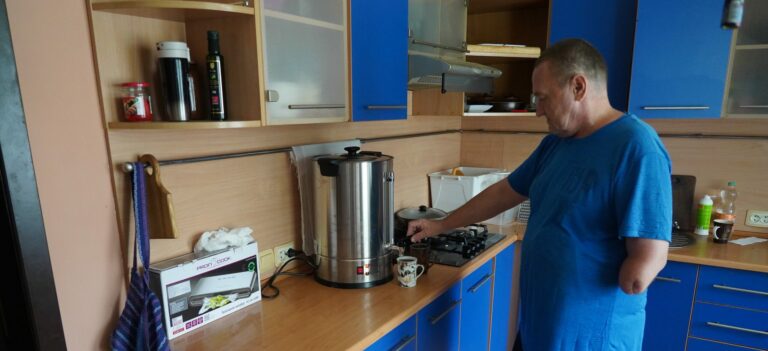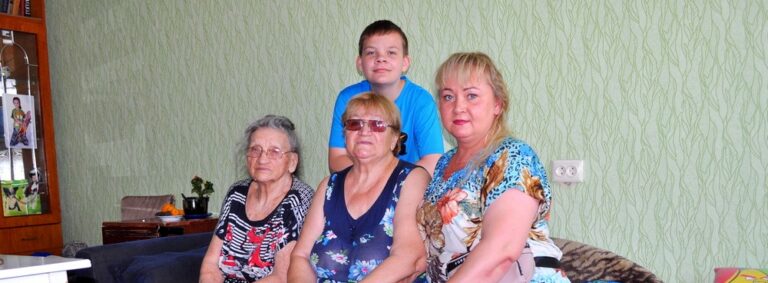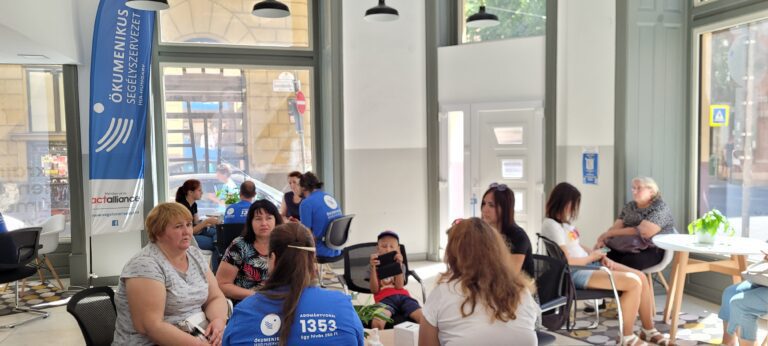What’s cooking in Zmiiv?
“I get eight thousand hryvnias (about 200 euros) after two kids. I have to cook separately for my younger son for health reasons, and I can see my daughter has psychological problems after all that we have gone through,” says Natalia when explaining how she tries to look after her children. The situation of the mother of three from Lyman, Donetsk region illustrates the multiple difficulties internally displaced people in Ukraine encounter.
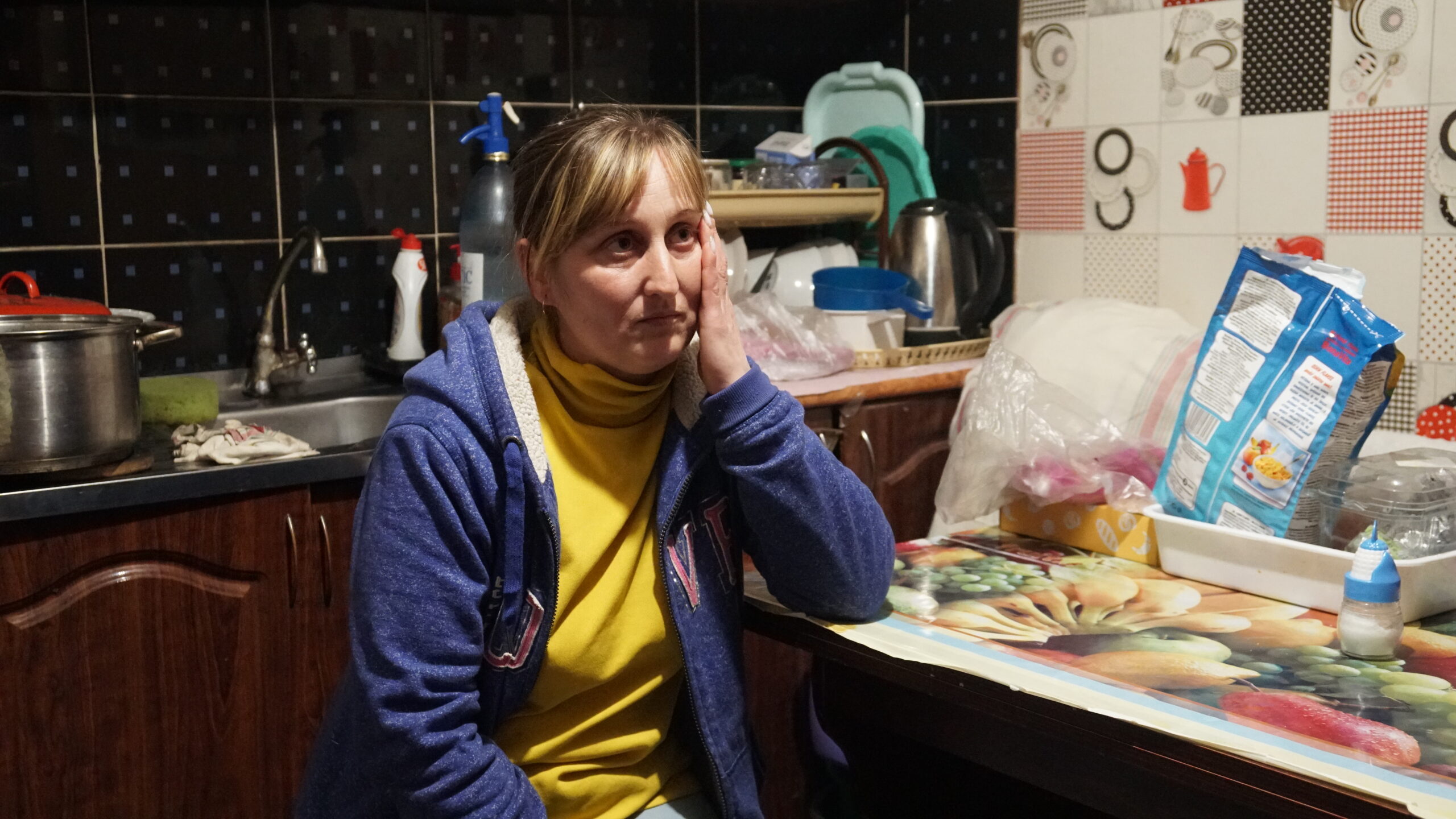

Like many, Natalia didn’t want to leave her home, trying to preserve family life and normality even during times of war. Fighting intensified in the summer, and when projectiles started exploding near her house, breaking the windows and damaging the roof, she knew that it was time to flee into the unknown, leaving everything behind.
In the town of Zmiiv, near Kharkiv city, she now lives with her children in a small, three-room shanty house with no bathroom inside and windows covered with blankets to keep the warmth inside. She had to renovate the house as much as possible to make it suitable for her children. The family’s new home is in the backyard of an estate owned by an elderly woman who offered them to stay rent-free. Such gestures of goodwill are essential to mitigate the daily struggles the most vulnerable victims of war have to deal with. However, Natalia explains that she has to count every penny to provide for her children.
The utility fees are rising in the wake of the attacks on the energy infrastructure, which, with an income barely enough to cover a four-member family’s needs, places a heavy burden on Natalia. The mother of three says they rely on humanitarian aid to cover what they cannot afford for their unbalanced diet. The only heat source in their new home is an old kitchen stove, which is barely suitable for cooking.
“We can only heat with firewood, so I must decide how much and when I put wood on the fire. We usually start the fire for the night, and I put something on the stove, like potato, to boil slowly,” says Natalia, adding that she would not be better off with gas or electric plates because that would only increase her utility bills.
Hungarian Interchurch Aid emphasises helping the most vulnerable according to their specific needs. For this, HIA works with local civic organisations to identify the needs and how help can be most effectively provided. That is why HIA supports local NGOs with long-term and practical goals in helping those in need through its Flexible Small Grants programme. Within the framework of its winterisation action plan, HIA supported the NGO The Youth of Zmiiv, which uses creativity and technology to help beneficiaries save on the costs of cooking and heating.
“We wanted to provide an alternative to people to gas or electricity, knowing very well how burdensome the utility bills can be. This is how our version of an iron-cast stove was born,” explains Artem, head of The Youth of Zmiiv. The stove is easy to carry, does not take up much space, and requires a small amount of firewood to provide enough energy for cooking while also radiating heat. The contraption dreamed up for this very purpose is created in a local business. Thus by empowering The Youth of Zmiiv, local economic actors are consequently supported by HIA.
With the specially designed stove, Natalia can now prepare food for herself and the children faster and with more attention. Her younger son requires a special diet, while her daughter has heart problems and has gained weight out of psychological issues she suffered from the war. Even though the stove is small, in Natalia’s eyes, its value is extraordinary.
